Plant Protection Undergraduate Program
Educational Programme
Plant Protection Study Programme is a bachelor degree program with its goal is to produce graduates who are professional in the field of plant pest and disease management or plant protection. The study programme is open to all senior high school graduates both Indonesia and foreign citizens with a specialization in the field of natural science. The study programme is organized using a semester credit point system and will be completed over at least 8 semesters (4 years) until a maximum of 12 semesters.
The study programme was first established in 1963 under the name of the Department of Plant Pests and Diseases. Furthermore, in January 10th, 2005, the name of the study programme was changed to the Department of Plant Protection (PTN). Since 1998 until now, the PTN has received a grade “A” (Excellent) accreditation from the National Accreditation Board for Higher Education (Badan Akreditasi Nasional Perguruan Tinggi [BAN PT]). In addition to the national accreditation, the PTN has also been assessed by Asean University Network – Quality Assurance (AUN-QA) and received a certificate of quality assurance with category of between “adequate as expected” and “better than adequate” for the period of 2013 - 2017.
Vission
The PTN is envisioned to become a leading study programme of international standard in the development of human resources as well as science and technology with a core competence in tropical bioresource-based plant pest and disease management to support sustainable agriculture.
Mission
To achieve its vision, the PTN executes the following missions:
- to develop and carry out undergraduate education of high quality in the field of plant pest and disease management;
- to develop science and technology in the field of bioresource-based plant pest and disease management through high quality research; and
- to support sustainable tropical agriculture through the application of science and technology in the field of ecofriendly plant pest and disease management and to improve society’s welfare.
Objectives
The PTN carries out an undergraduate study program to produce graduates who have two competencies, i.e. (1) a mastery on basic and applied knowledge for identifying, analyzing, and solving plant pest and disease problems and (2) possession of skills in plant health management in order to provide an effective approach to apply eco-friendly plant protection technologies. In addition to the specialised skills and knowledge, the graduates are also expected to have three generic life skills: (1) good communication skills, (2) sound managerial skills, and (3) sensible entrepreneurial skills.
Requirements for Obtaining a Degree
Undergraduate students are required to complete a minimum of 144 SKS to obtain a degree, including seminars and undergraduate projects.
Awarded Title
Students who have completed the mayor's degree in plant protection are awarded a Bachelor of Agriculture or Bachelor of Agriculture degree.
Learning Outcomes of Plant Protection Study Program
Upon completion of the study at the Plant Protection Study Program, the graduates are expected to:
- have knowledge on the principles of natural sciences, social sciences, mathematics, economics, and entrepreneurship to apply in the field of plant protection;
- have knowledge on the essential of identification of various plant pests and pathogens as well as on diagnosis of plant diseases;
- have appropriate knowledge on biology and ecology of various plant pests and pathogens;
- have applied knowledge and skills in the techniques of observation on plant pest and pathogen population as well as on the estimation of plant damage level;
- have applied knowledge and skills in various plant pest and disease control tactics and in strategy for employing the various control tactics in integrated plant pest and disease management;
- have knowledge on the concepts of phytosanitary;
- have ability to identify plant pests and diseases and their natural enemies as well as to diagnose plant diseases;
- be able to apply the principles of healthy agroecosystem for plant pest and disease management;
- be qualified to design and implement integrated plant pest and disease management by employing eco-friendly effective and economical methods;
- be able to analyze pest and disease problems in an agroecosystem and formulate the strategy of their control based on integrated pest management;
- be able to work in a team and responsible for the success of plant pest and disease management system as well as to adapt to global challenges;
- be qualified to apply different methods to communicate effectively with the scientific community and the society as a whole;
- have awareness of the importance of life-long learning; and
- feel obliged to behave and act accordance to the accepted norms and ethics.
Curriculum
Curriculum is one of the modalities that determines the quality of an educational program. The quality of an academic program cannot be separated from the problem of relevance. Any attempt towards creating quality education cannot disregard the relevance of the program being implemented. Considering this matter, the PTN carefully develops a curriculum which would make the academic program in plant protection relevant to the present and future conditions. Therefore, the academic staffs of the PTN have designed the curriculum in plant protection in such a way that:
(a) it provides the students with the knowledge and skills appropriate for developing successful careers at the farmer level, in governmental institutions, research and development sectors as well as in the industrial world;
(b) the students acquire all the basic sciences needed for future development of the field of study;
(c) it is feasible time-wise and resource-wise so that it can be followed effectively by the students within the proposed length of study;
(d) it is relevant to the current and future needs of the students as an individual and as a member of a society;
(e) the students have a scientific mind as well as empathy towards the society.
The structure of the curriculum of PTN consists of four components which described as follows:
- Basic Natural and Social Sciences Course: consists of 32 semester credit units (SCUs) or 22.2% of the total study load (144 – 146 SCUs) that include basic subjects as the foundation stone of subsequent subjects as well as a medium of matriculation for students who coming from different regions/high schools so that they are expected to have the same basic knowledge.
- Basic Agriculture Course: consists of 38 SCUs (or 26.4% of the total study load) covering subjects organized by other departments but provides a solid foundation for deepening of the core competence and other competence such as communication, managerial, and entrepreneurial skills.
- Main Competency Course: consists of 61 SCUs of subjects (or 42.4% of the total study load) covering all the core competencies of plant protection ranging from basic to applied science. The subjects are spread from second semester through seventh semester with a sequence of interrelated subjects with each other.
- Supporting Competency Course: consists of 13-15 SCUs of subjects (or 9% of the total study load) covering one of the three other competence or other knowledge/skills that support the core competence.
The structure of subject cources of the PTN’s curriculum in detail in each semester can be seen in the table below.
|
No |
Code |
Subject Course |
Semester Credit Unit (SCU) |
Course Category* |
|
1st SEMESTER (19 SCU) |
||||
|
1 |
BIO100 |
3 (2-0) |
BNSC |
|
|
2 |
EKO100 |
3 (3-0) |
BNSC |
|
|
3 |
IPB100 |
3 (2-2) |
BNSC |
|
|
4 |
IPB106 |
2 (1-2) |
BNSC |
|
|
5 |
IPB107 |
2 (2-0) |
BNSC |
|
|
6 |
KIM 101 |
3 (2-3) |
BNSC |
|
|
7 |
MAT101 |
3 (2-3) |
BNSC |
|
|
2nd SEMESTER (19 SCU) |
||||
|
1 |
AGB100 |
1 (1-0) |
BNSC |
|
|
2 |
FIS100 |
3 (2-3) |
BNSC |
|
|
3 |
IPB105 |
2 (1-2) |
BNSC |
|
|
4 |
IPB108 |
3 (2-2) |
BNSC |
|
|
5 |
IPB109 |
1 (0-3) |
BNSC |
|
|
6 |
KPM 130 |
3 (2-2) |
BNSC |
|
|
7 |
PTN211 |
4 (2-6) |
MCC |
|
|
8 |
PTN201 |
2 (2-0) |
MCC |
|
|
3rd SEMESTER (19 SCU) |
||||
|
1 |
AGH200 |
3 (2-3) |
BAC |
|
|
2 |
TSL202 |
3 (2-3) |
BAC |
|
|
3 |
PTN224 |
3 (2-3) |
MCC |
|
|
4 |
PTN223 |
2 (1-3) |
MCC |
|
|
5 |
PTN220 |
2 (1-3) |
MCC |
|
|
6 |
ESL211 |
3 (3-0) |
BAC |
|
|
7 |
ARL200 |
3 (2-3) |
BAC |
|
|
4th SEMESTER (21 SCU) |
||||
|
1 |
BIO242 |
3 (2-3) |
BAC |
|
|
2 |
AGH212 |
3 (2-3) |
BAC |
|
|
3 |
BIO212 |
3 (2-3) |
BAC |
|
|
4 |
BIO230 |
3 (2-3) |
BAC |
|
|
5 |
PTN212 |
3 (2-3) |
MCC |
|
|
6 |
PTN222 |
3 (2-3) |
MCC |
|
|
7 |
PTN214 |
3 (2-3) |
MCC |
|
|
5th SEMESTER (22 or 24 credits) |
||||
|
1 |
AGH321 |
3 (2-3) |
BAC |
|
|
2 |
STK211 |
3 (2-2) |
BAC |
|
|
3 |
GFM221 |
3 (3-0) |
BAC |
|
|
4 |
PTN 307 |
4 (3-3) |
MCC |
|
|
5 |
PTN305 |
3 (2-3) |
MCC |
|
|
6 |
PTN311 |
2 (1-3) |
MCC |
|
|
7 |
- |
Minor or Supporting Course 1 |
2 or 3 |
SCC |
|
8 |
- |
Minor or Supporting Course 2 |
2 or 3 |
SCC |
|
6th SEMESTER (23 or 25 credits) |
||||
|
1 |
PTN308 |
3 (2-3) |
MCC |
|
|
2 |
PTN300 |
2 (2-0) |
MCC |
|
|
3 |
PTN 306 |
3 (2-3) |
MCC |
|
|
4 |
PTN309 |
3 (2-2) |
MCC |
|
|
5 |
PTN398 |
3 (2-2) |
MCC |
|
|
6 |
PTN321 |
2 (1-3) |
MCC |
|
|
7 |
FPA400 |
Professional Field Work |
3 |
BAC |
|
8 |
- |
Minor or Supporting Course 3 |
2 or 3 |
SCC |
|
9 |
- |
Minor or Supporting Course 4 |
2 or 3 |
SCC |
|
7th SEMESTER (11 or 12 credits) |
||||
|
1 |
PTN401 |
3 (2-3) |
MCC |
|
|
2 |
PTN402 |
2 (0-6) |
MCC |
|
|
3 |
PTN403 |
2 (2-0) |
MCC |
|
|
4 |
FPA401 |
Agricultural Politics |
2 (2-0) |
BAC |
|
5 |
- |
Minor or Supporting Course 5 |
2 or 3 |
SCC |
|
8th SEMESTER (7 credits) |
||||
|
1 |
PTN498 |
1 |
MCC |
|
|
2 |
PTN499 |
6 |
MCC |
|
* BNSC = Basis Natural and Social Sciences Course; BAC = Basic Agriculture Course; MCC = Main Competency Course; SCC = Supporting Competency Course


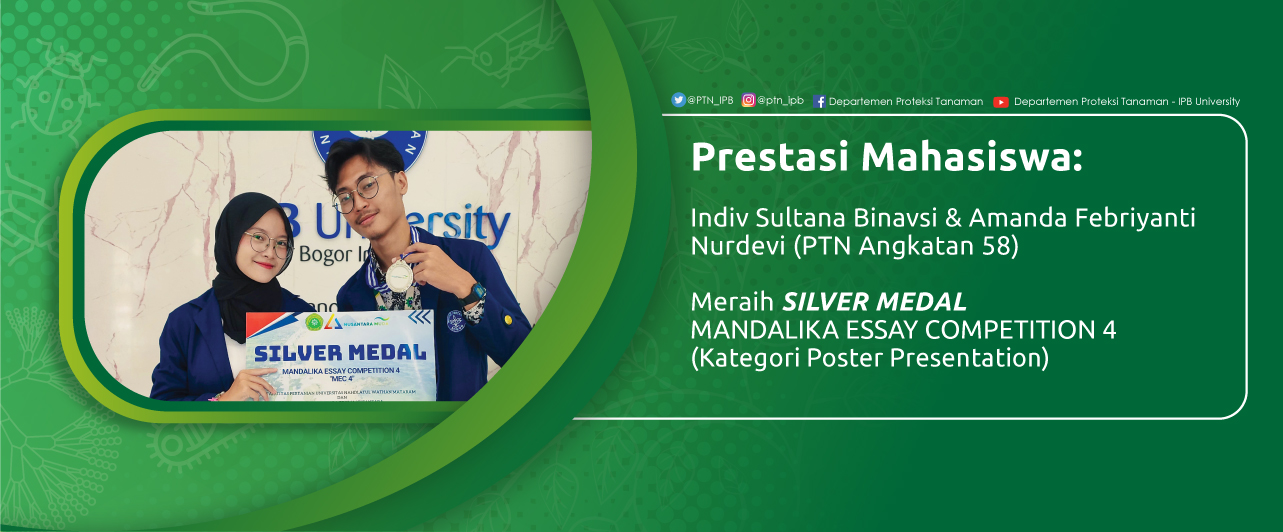
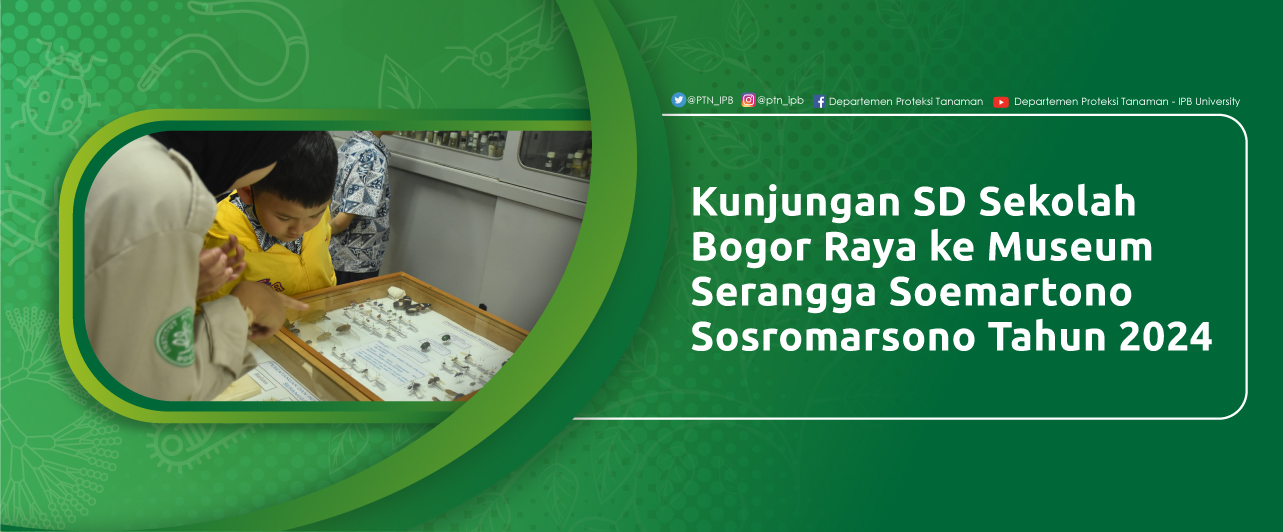
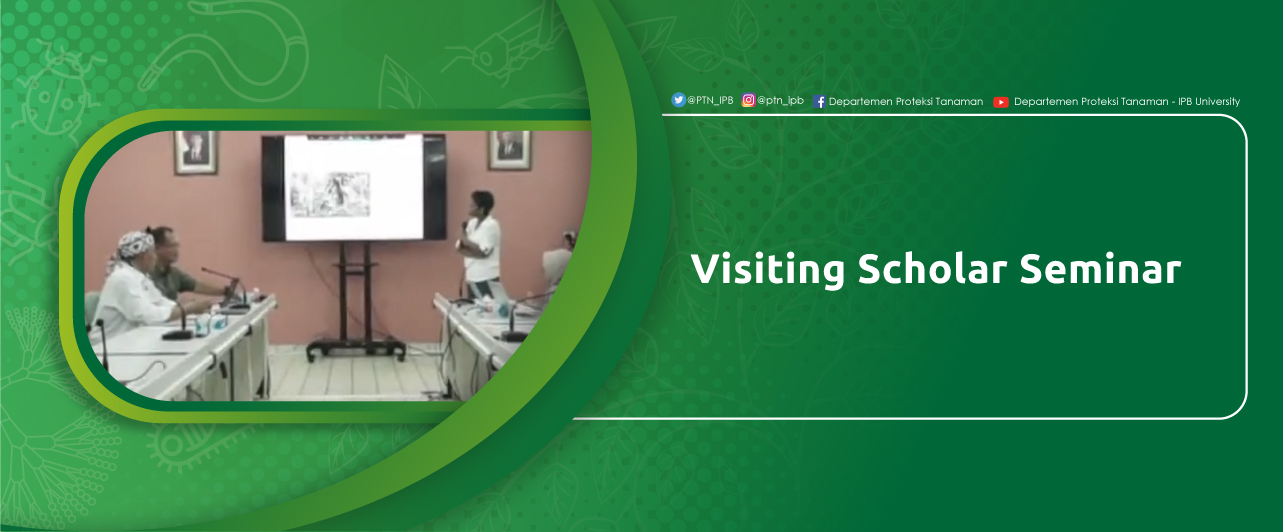

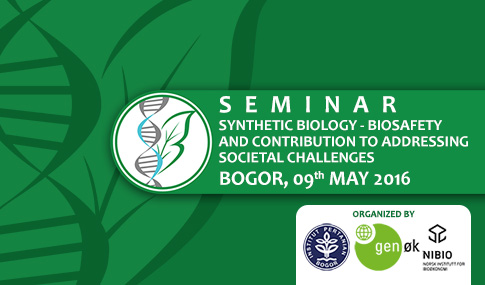
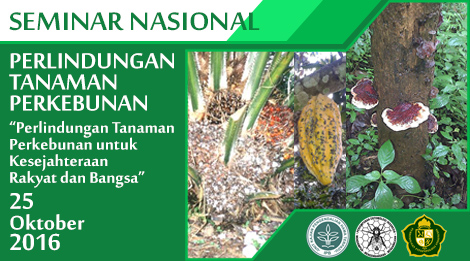

.jpg)